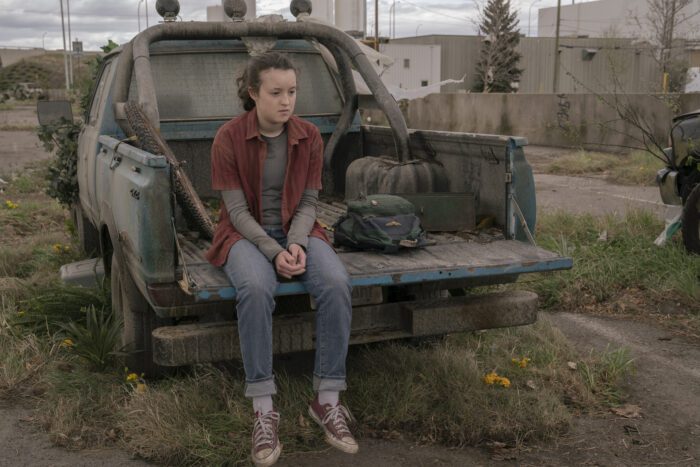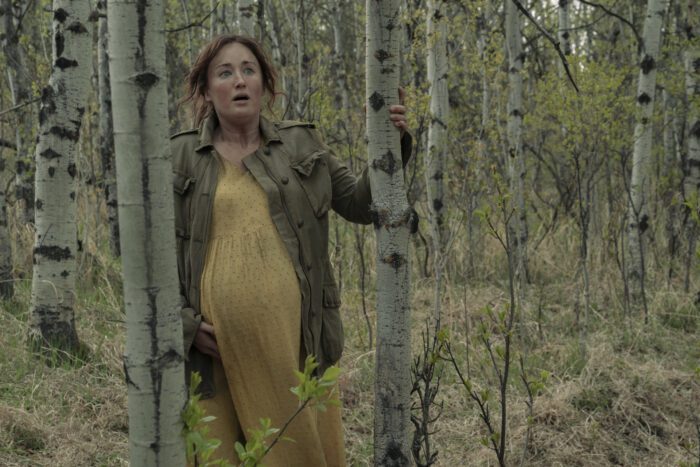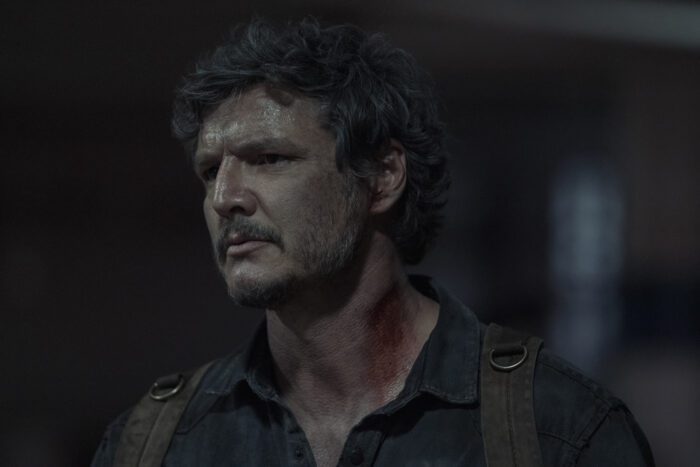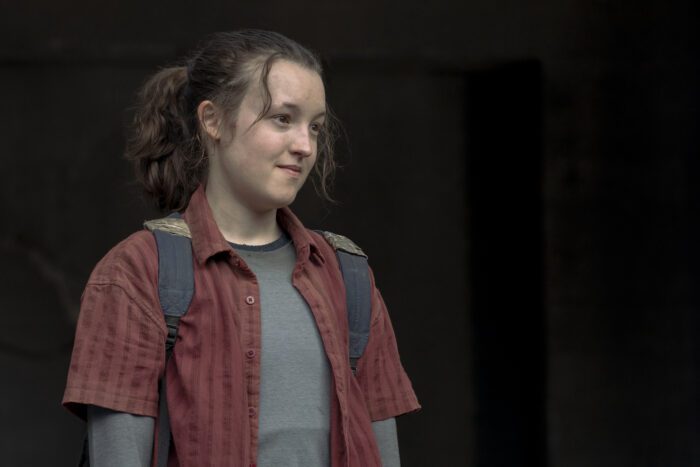The following recap contains spoilers for the season finale of The Last of Us, S1E9, “Look for the Light” (written by Craig Mazin and Neil Druckmann and directed by Ali Abbasi)
Bella Ramsey warned us in advance. In interviews leading up to tonight’s Season 1 finale, Ramsey, who plays Ellie in the hit HBO show, promised this episode would “divide people massively.” The millions who have played the game before had a sense of what was coming. But for those tuning into the last episode of the season for HBO’s latest tentpole program with no prior knowledge, the agonizing choices made in this short 44 minutes of television could spark a debate that would fill volumes of philosophy textbooks on the subjects of morality, choice, and the right to utilitarianism.
As we see from the opening moments of Joel and Ellie’s time in this episode, their days of travel are almost over. The pair have arrived in Salt Lake City and all that’s left is to locate the hospital where doctors will be waiting for Ellie. This unsurprisingly has Ellie unnerved and distracted. While the path to get here has been fraught with danger, heartbreak, and near-death experiences, at least Ellie has been able to travel those uncertain roads with Joel. This last step of the journey—whatever the Fireflies hope to do to take her immunity and mass-produce it—must be done alone.

She knows all of this, and knows she can’t do things “halfway…we finish what we started,” but what she confides in Joel is that once all of these medical road bumps are behind them, she only wants to be with him. Wherever that is. At this moment, Ellie tells Joel that “when we are done, we will go wherever you want. I’ll follow you anywhere you go.”
Upon hearing this, one cannot help but compare Ellie to Ruth from the Old Testament. The famous story of Ruth is that the man she married, her brother-in-law, and her father-in-law all died while she was young. Essentially everyone she cared about was gone except for her mother-in-law, Naomi. Because Ruth has no other hope and no other future, she clings to her relationship with Naomi, telling her, “Don’t urge me to leave you or to turn back from you. Where you go I will go, and where you stay I will stay. Your people will be my people and your God my God. Where you die I will die, and there I will be buried.”
Ellie eventually tells Joel about the events of Episode 7 and what transpired with Riley. She remembers Tess. She recalls the names of Henry and Sam. Death has been all around her for as long as she can remember, and Joel—who has become her father—is the protection, the community, and the love that she has always desperately wanted. Joel, as we know, has been lost in a wilderness of his own since the death of his daughter, Sarah, and can now freely admit that Ellie has filled that hole in him.
In perhaps one of the most emotionally raw moments of the entire season, Ellie and Joel are able to sit and have a peaceful conversation for a few minutes. It gives Joel a chance to tell Ellie that on the day after Sarah died, he tried to kill himself. He was unsuccessful (Ellie: “I’m glad that thing didn’t work out”) and subsequently purposeless for 20 years. Ellie tries to comfort him by saying, “I guess time heals all wounds,” but these are words they both know are untrue. When Joel tells her, “it wasn’t time that did it,” any last thought that these two have not become father and daughter perishes right there.
This episode opens with another parent. The audience is introduced to Ellie’s mother, Anna (played by Ashley Johnson, who voiced Ellie in the original game), being forced to give birth while a clicker was actively chasing her. Marlene and the Fireflies find Anna and Ellie but learn Anna was bitten in the process of giving birth. Anna, knowing that she will not be able to care for her own child, puts Marlene in an impossible scenario. Marlene will take Ellie and then kill Anna before she can turn. It’s the kind of no-win situation that tends to populate post-apocalyptic worlds, but for Anna, she could not be more resolute in what must happen. It’s the kind of sacrifice that any parent would make to ensure the safety of their child.

That decision in the first few minutes of the episode runs parallel to the choices Joel must make in the last few minutes of this finale. Joel and Ellie are captured by Fireflies and immediately separated. When Joel awakes in the hospital, Marlene is there to tell them that their doctors believe a vaccine can be developed from what runs through Ellie’s body. But the good news ends there. The doctors need everything that is inside Ellie’s body, including what is living in her brain.
Welcome to the divisive segment of the episode.
What struck me about what happens next is that Joel does not hesitate or consider the possibility of letting Ellie go through the surgery that will end her life but save countless others. After he overpowers his Firefly escorts, it is a determined, unafraid walk through the hospital. He kills anyone and anything that could get in his way of rescuing Ellie; of rescuing his daughter.
It is no accident, I’m sure, that the way this scene is edited purposefully cuts to Joel’s feet three times as he walks through the hospital in his attempt to find Ellie. In my reading of that edit, it’s meant to represent the steps a father will take to keep his child safe. He didn’t stop to consider the macro-ramifications of pulling Ellie out of that surgery. When your child is in danger, you will literally destroy the world to make sure they are safe.
Joel’s choice at this moment is, of course, a burdensome ethical dilemma. Marlene clearly spelled out for him that Ellie is the first, best hope for human immunity from cordyceps that they have ever seen. Her sacrifice, while tragic, will save literally millions of lives. But what was established long ago in Episode 1 is that Joel cares not what happens to others, as long as his daughter is safe. Essentially, he (and we) are stepping into the Trolley Problem, a Cornelian dilemma, the Kobayashi Maru.

I will leave the Trolley Problems and Cornelian dilemmas to much larger, philosophically-inclined brains than mine, but I have quite a bit of experience with the Kobayashi Maru. If you don’t know its origins, it was a no-win scenario given to Starfleet Captain hopefuls in the Star Trek universe. First introduced in 1982’s Star Trek II: The Wrath of Khan, this test was meant to study a captain’s character more so than the decision they made. There was no right decision to make, as all ended in death or capture. But in the face of unwinnable adversity, what type of person do we become?
The test and its place in the story are juxtaposed not only with the conversations Kirk and Spock have in the movie about how “the needs of the many outweigh the needs of the few, or the one,” but also with the decision Spock must make in the movie’s climax when he is faced with an impossible choice. The needs of the many outweigh the needs of the few, or the one. Sounds familiar.
I know about the Kobayashi Maru because of my father. A self-professed Trekkie who grew up watching Kirk, Spock, McCoy, and the whole crew on NBC in the late 1960s, he taught me about Tribbles, about Khan, about Vulcans, and about the six Star Trek movies that would be released between 1979 and 1991. We watched those movies together endlessly when I was growing up as he would teach me the nuances of the Gene Rodenberry-verse.
It’s one of many things that my father taught me before he passed away three years ago. He taught me helpful things like how to change a tire, how to save some of my salary, and how to fix a running toilet. He taught me foundational things like how to respect my wife, how to consider others before myself, and how to put family first.
But he also taught me his most important thing: “Everything I do, how hard I work, and every decision I make is so my children and grandchildren will be taken care of.” He would often say it, and it was always true. He would give up the world and everything he ever earned in it if it meant his children were safe and happy. And if anyone or anything ever stood in the way of his children being protected, God help them all.

Joel’s actions at the end of “Look for the Light” are written and performed in a way to be controversial and divisive. Ellie is humanity’s best hope, after all! But are the choices Joel makes any different than what every other father would make if it meant protecting their child that means more to them than the world? My role now that I am a father is to protect and nurture my children as long as they have breath in their bodies.
The choice Joel makes to rescue Ellie, but also to lie to her about her ability to be able to help others, places any future risk squarely on his back. Every parent has faced the choice of withholding the whole truth in a situation if their child could potentially be at risk. When Joel swears to Ellie that his version of events are the truth, any physical harm that Ellie would have suffered is transferred into a potential future fracturing of their relationship.
How will Ellie react if she ever discovers Joel eliminated the prospect of Ellie saving the world? How will Ellie feel knowing that the choice was taken out of her hands and Joel acted without consulting her? Joel lying to her about what was going to happen removes Ellie’s agency and identity. These scenarios summarize the burden parents must be willing to bear to ensure their child, like Ellie, is safe and protected. Joel is a father again and has acted in the best interest of his child, but that can often have consequences.
How Joel’s actions and his lie to Ellie about what happened at the hospital manifest themselves will be the central question as The Last of Us heads into pre-production for Season 2. This first season was overall a massive success emotionally, critically, and commercially. It was…well, I’ll just let Joel and Ellie sum it up with their own words from this episode.
“Was it everything you hoped for?”
“It’s got its ups and downs, but you sure can’t deny the view.”

